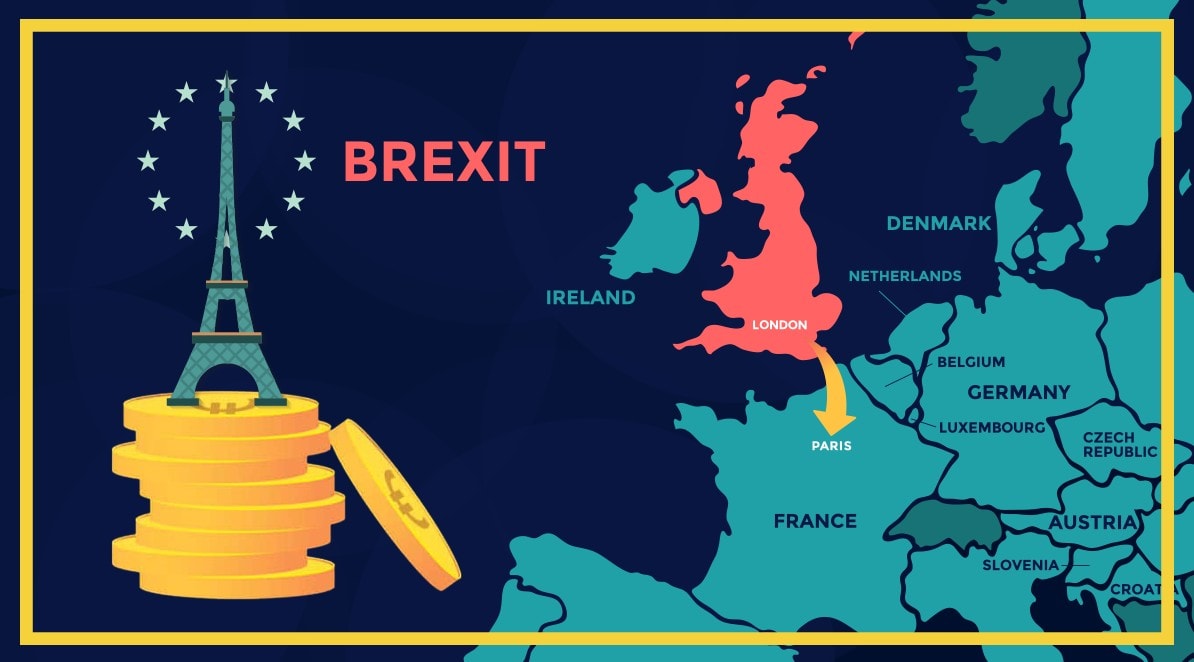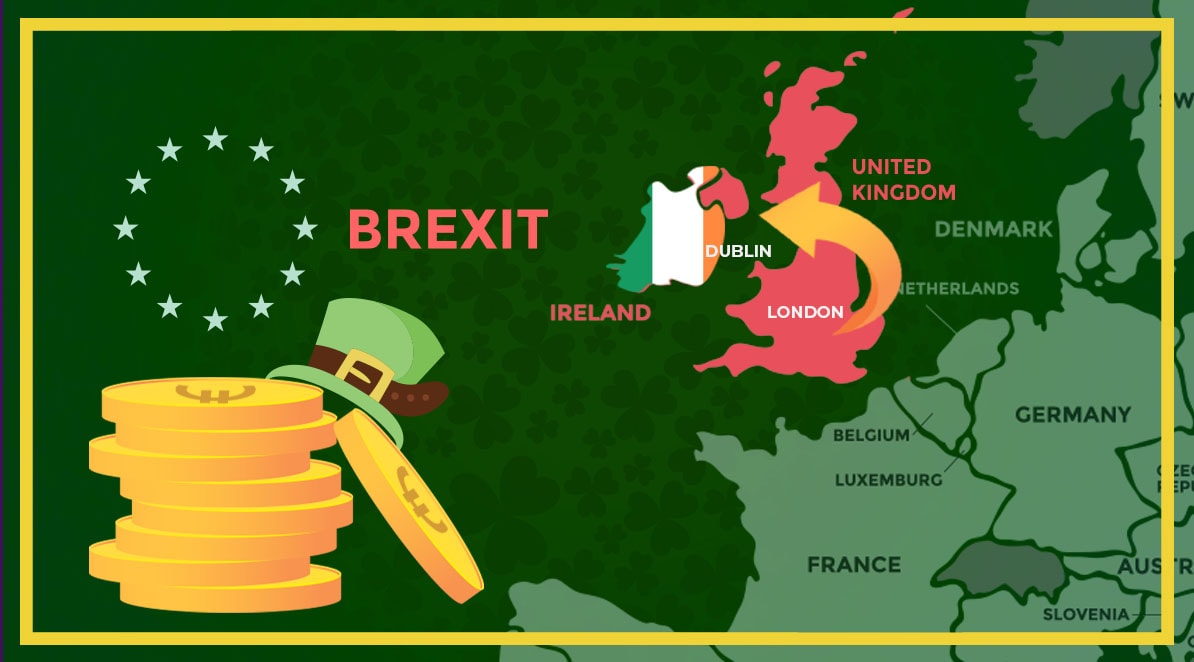When you want footloose international capital to ‘Choose France’ – as the marketing slogan urges – it’s helpful when your cheerleader is a former banker.
Emmanuel Macron famously worked for blue-blooded investment bank Rothschild so knows well how to craft overtures that the financial world’s chief executives want to hear as they relocate from the UK as a result of the country’s exit from the European Union (EU).
The good news for France is that the president’s messages seem to have been resonating pretty well. ‘Few cities have made as much effort to attract business from London as Paris – and it seems to have worked’, opined New Financial’s ‘Brexit & The City: The Impact So Far’ report in April.
From a total of more than 440 firms in banking and finance that have moved or are moving part of their business, staff, assets or legal entities from the UK to the EU, 102 have picked Paris (second only to Dublin), according to the think-tank’s analysis, which opined that the city on the Seine will become the EU’s closest financial centre to a ‘mini-London’ as the 27-strong bloc’s multi-polar future develops.
New Financial’s tallies will have continued to edge upwards since its report’s publication. Indeed, Paris has scored well in more recent studies, as the city’s marketing bodies – such as Paris Europlace – are enthusiastic to highlight:
💡 #DoYouKnow that according to the latest study of @NewFinancialLLP, Paris is the leading 🇪🇺 financial hub in 16 out of 28 financial sectors ?
— Paris EUROPLACE (@europlace) June 16, 2021
Among them: #CorporateBanking #Trading #Insurance #AssetManagement #PrivateEquity pic.twitter.com/zZVKJUi18v
To woo financial services investment following Brexit,France has “reformed its labour market, tax regime and financial regulation, which have led to ambitious relocations of business in France,” a spokesperson from the French Ministry for the Economy & Finance tells #DisruptionBanking.
“Corporate taxation reform has contributed to the attractiveness of Paris as a financial centre with, more specifically, the multi-year reduction of corporate tax to 25 per cent by 2022; the elimination of the top marginal bracket of the payroll tax; as well as the transformation of the tax credit for competitiveness and employment (CICE) into a permanent tax reduction and the reduction of production taxes by €10 billion,” the spokesperson says, adding that “relocation possibilities for families, with bilingual education, have been facilitated.”
The financial world’s big names seem to like it. US-headquartered banking giants including JP Morgan, Bank of America, Citigroup and Goldman Sachs are among those growing in Paris; as well as asset managers such as BlackRock, Citadel and Millennium Global Investments; insurance providers such as Chubb; and interdealer brokers such as TP ICAP and the equity-trading platform Aquis Exchange.
In the increasingly disrupted financial services world, start-ups are important, too. “A key measure for the creation of start-ups has been the extension of the BSPCE (bons de souscription de parts de créateurs d’entreprises) scheme to employees of foreign start-ups and to directors and supervisory board members of issuers,” the ministry spokesperson adds. “This has helped to make Paris an innovative place, with a strong presence in digital finance.”
Such reforms have made the task of Paris Europlace (which focuses on financial services), as well as government agencies such as Choose Paris Region and Business France, significantly easier.
There is pressure for further reforms. For example, a Paris Europlace working group on the attractiveness to Paris for issuers issued recommendations in June:
[#IFFParis]
— Paris EUROPLACE (@europlace) June 29, 2021
🔴 Fireside Chat moderated by @fabienneLissak is live.
🗣Panelists: @XavierGirre, President Corporate Issuers’ Committee @europlace, P. Henry, HoG EMEA @HSBC_FR & D. Ladegaillerie, CEO @believe will introduce the #EUROPLACE report on "Issuers, the Choice of Paris" pic.twitter.com/o8UHGqjkon
“Paris has experienced some rather broad-based benefits from Brexit without becoming an El Dorado or the City on the Seine,” Jonathan Lewis, a partner specialising in capital markets, structured finance and financial services the Paris office of global law firm Clifford Chance, tells #DisruptionBanking by videocall.
The Welshman has observed “significant efforts” to welcome financial services institutions and work.
“The country introduced a sort of ‘non-dom’ regime for highly paid ex-pats; has made efforts to modernise French law and regulation, notably with the Loi Pacte [enacted in 2019]; the French law ISDA Master Agreement; and the international chamber of the ‘Paris Tribunal de Commerce’ (which can conduct proceedings in English) becoming more user-friendly to international financial services and capital markets,” Lewis says. “In the past the perception had always been that France was anti-business but, under Macron, France is open to and for business.”
Lewis, who has lived in Paris for 25 years, says that Marcon-championed initiatives are primarily driven by a “long-term need to modernise the legal and regulatory environment to be more efficient for business” and that they “coincided with the occurrence of Brexit but were necessary reforms in any event.”
‘Choose France’ events at the Palace of Versailles have reinforced the pro-business message – and perhaps helped to clinch the deal over vin blanc and canapés in a land where non-French banks have often struggled.
French economist Nicolas Véron, who also formerly worked for Rothschild (albeit some time before Macron), is in no doubt that the president enjoys pressing the flesh of global finance’s most powerful chief executives (the most recent ‘Choose France’ gathering in June was widely covered).
“These companies want to feel they are welcome – that’s obvious in the UK and largely, too, in Germany but perhaps less so in France, which is not traditionally seen as a pro-business environment,” Véron, a senior fellow at think-tank Bruegel and at the Peterson Institute for International Economics, tells #DisruptionBanking from Paris. “The political climate has to be factored by these companies into a risk analysis, and political risk can be viewed as higher in France, but that’s not to be exaggerated.”
Other countries – particularly those EU financial capitals competing for post-Brexit business – have been watching closely. Hubertus Väth, managing director of promotional body Frankfurt Main Finance (who #DisruptionBanking spoke to nine months ago in our analysis of Brexit’s impact so far on Frankfurt) tweeted this in April:
Let’s work together in #Europe to increase the size of the cake rather than fight about the size of the slice!@europlace, @LuxFinancehttps://t.co/ZNzOmJMFm5
— Hubertus Väth (@HubertusVth) April 9, 2021
Väth told #DisruptionBanking at the start of the year that his city had seen about 3,000 jobs created because of Brexit (as distinct from jobs relocating from London because of Brexit) by mid-2020. This figure is in the same ballpark as those cited in media reports on Brexit-related financial services job gains in Paris. But Covid has disrupted and delayed physical relocations.
“Brexit in financial services has not yet fully happened,” says Véron. “There are different stories within the big story and I think different banks often have different stories, too. Jobs numbers typically require a lot of contextual knowledge to be interpreted correctly. But the number of senior executives from non-French banks that are now located in Paris has grown a lot, albeit from a very low point.”
Are more senior bankers en route to Paris? As the world (hopefully) moves beyond Covid restrictions, and financial institutions’ post-Brexit physical footprints become clearer to see (and scrutinise), it seems likely.
“Because of regulatory pressure to have directing minds and senior posts in the EU, so that these entities are capable of taking strategic and managing things from ‘Europe’, it is high-executive level personnel who need to be located in the EU. There will definitely be more movement over time,” says Lewis.
In simple terms, Brexit needs to ‘mean’ Brexit for EU-related financial business. The European Central Bank (ECB)’s supervisory board vice-chair, Yves Mersch, set out the Frankfurt-based authority’s thinking on this in July last year, writing in a blog entitled ‘Brexit: banks must prepare for the end of the [Brexit] transition period’ that the ECB ‘expected that banks will soon reach their end-state target operating models’. ‘Staff relocations can be delayed on account of new lockdown measures or travel restrictions only,’ Mersch warned.
The ECB told us this week that a ‘desk-mapping’ exercise, reported to be ‘at an early stage’ by Bloomberg in May, remains ongoing. #DisruptionBanking understands that this is expected to conclude next year.
It will be interesting to see future years’ European Banking Authority (EBA) reports on banking’s high earners (remuneration of more than €1 million). Six weeks ago the EBA – which itself relocated from London to Paris as a direct result of Brexit (after winning a contest between EU cities) – published a 42-page report on high earners for 2019, noting that preparation for the UK’s EU exit had caused ‘a number of high earners to relocate from the UK to the EU’. Germany (an increase of 42), France (36) and Italy (35), in particular, saw increases.
Inevitably, coverage varied. ‘London lost millionaire bankers to Continent ahead of Brexit’ was Politico’s take. ‘Top bankers stay in City after Brexit’ was preferred by The Times (UK).
With the Brexit end-point in financial services far from upon us, banking’s global glitterati’s utterances continue to be watched closely.
‘We may reach a tipping point many years out when it may make sense to move all functions that service Europe out of the United Kingdom and into continental Europe,’ US-headquartered JP Morgan’s chief executive Jamie Dimon wrote in his ‘Letter to the Shareholders’ in April.
$JPM Chairman and CEO, Jamie Dimon, releases his Annual Letter to Shareholders.
— J.P. Morgan (@jpmorgan) April 7, 2021
The world is, though, largely moving on from Brexit – certainly outside the UK. The ‘B’ word is a marginal talking-point, at most, for most in Paris. Anglo-French relations are not in great shape, soured by rows over everything from nuclear-powered submarines to fishing rights and migrants’ attempts to cross the Channel. But it’s not just politicians either side of la Manche who seem to have diverged.
“London and Paris used to be converging cities, pre-Brexit. You don’t get the same feeling now,” reflects Lewis.
It’s the same for financial services. “I think the equivalence debate is dead,” Lewis continues. “Clearly there won’t be equivalence based on reciprocity in the near term. Both the EU and the City will evolve in the light of this outcome.”
But politics can be a funny thing. “It depends on political decisions that haven’t yet been made,” responds Véron, when asked how he envisages the next few years panning out as regards the Brexit fallout and Paris. “There’s nothing deterministic here.”
By Ian Hall
In previous Brexit-related explorations for #DisruptionBanking, Ian examined how Amsterdam, Dublin/Ireland, Luxembourg and Frankfurt are faring; he has also examined the growth of France’s fintech sector.
#Paris #France #Brexit #EuropeanUnion #Macron #ParisEuroplace #ChooseFrance #London #equivalence













